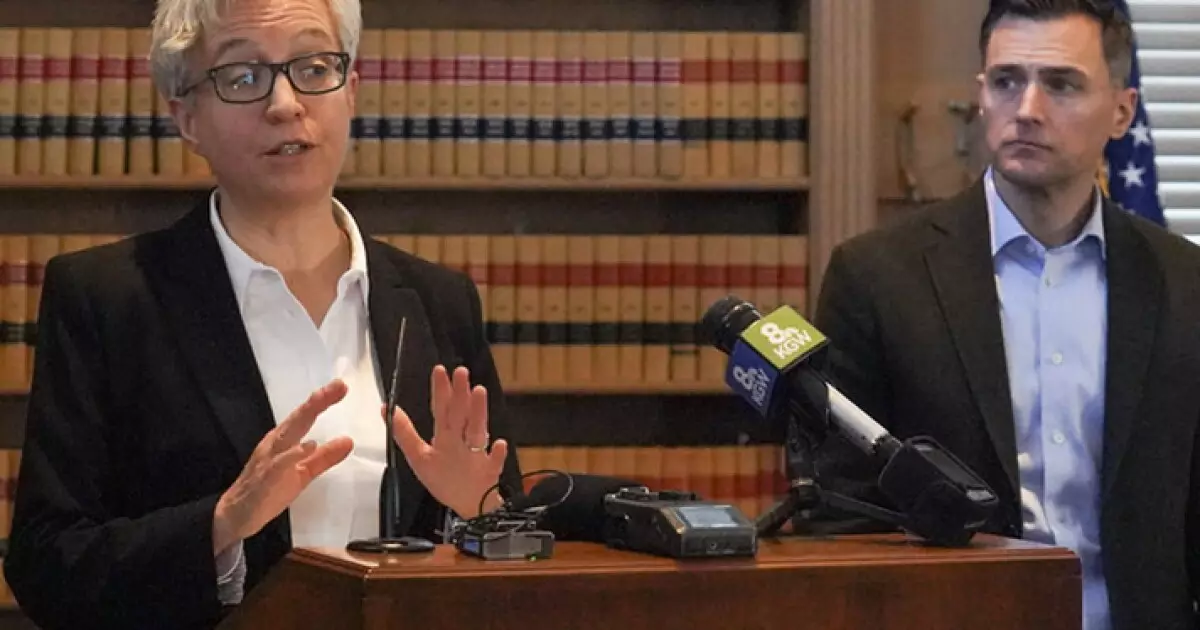Oregon stands at a crossroads where political indecisiveness and an unwillingness to fund critical infrastructure have precipitated a looming disaster. The recent wave of layoffs at the Oregon Department of Transportation epitomizes this failure to govern responsibly. When lawmakers adjourned without passing a comprehensive transportation funding package, they didn’t just momentarily delay projects—they initiated a systemic collapse that could mar Oregon’s mobility and economy for years to come. The inaction reflects a shortsighted political calculus that prioritized ideology over pragmatism, neglecting the essential services that underpin daily life and economic vitality. The paralysis demonstrated by legislative leaders highlights a dangerous trend: the neglect of infrastructure as a fundamental element of good governance.
The Human Toll: A Threat to Safety and Community Well-Being
The human impact of these layoffs cannot be overstated. Nearly 500 workers, including maintenance crews, operational staff, and support personnel, are facing job losses with a cutoff date of July 31. This isn’t just a headline—it’s a humanitarian crisis in the making. Maintenance crews are the backbone of road safety, responsible for pothole repairs, pavement upkeep, and wildfire mitigation—services that directly impact every Oregonian. Diminishing these services isn’t just a matter of inconvenience; it’s a clear escalation in risks, increasing the likelihood of accidents, wildfire spread, and emergency response delays. The potential for longer road closures, hazardous driving conditions, and decreased wildfire defense poses tangible threats to public safety, especially in rural and mountainous regions where emergency access already faces obstacles.
The Political Reckoning: Budget Cuts as a Symptom of Broader Failures
The decision to slash nearly 932 positions, including numerous vacant ones, reveals a government hamstrung by indecisiveness and underfunding. Administrators have been forced into a reactive stance, managing shrinking resources while critical projects remain unfunded. This shortsighted approach neglects the long-term economic benefits of robust transportation infrastructure—jobs, safety, and economic productivity—that are sacrificed in the process. The political failure to secure adequate funding through House Bill 2025, a comprehensive $14.6 billion tax and fee increase, exposes a deep divide among lawmakers. Their inability to meet the supermajority threshold underscores a broader reluctance to accept the fiscal responsibilities necessary for maintaining Oregon’s infrastructure.
The Dangerous Path Forward: Escalating Risks and Economic Costs
The forecast for Oregon’s roads and highways is bleak as winter approaches. Reduced snow and ice removal, delayed pavement repairs, and scaled-back wildfire mitigation efforts will expose travelers and residents to increased danger. Rural communities will bear the brunt of these cutbacks, with longer response times and diminished safety measures. The decision to hold hundreds of positions vacant over multiple biennia underscores a leadership failure to prioritize core responsibilities. Instead of smart investments that would ensure safety and economic stability, the state is choosing a path of further decline, making emergencies more likely and response efforts more compromised. This isn’t just mismanagement—it’s a reckless gambit with the health and safety of Oregon’s citizens at stake.
The Broader Implications: A Question of Leadership and Priorities
Oregon’s transportation crisis is emblematic of a larger failure within governance—an abdication of responsibility to address urgent infrastructural needs. The leadership’s reluctance to implement responsible taxation reflects a lack of political courage, sacrificing future security for short-term political gains. It is a stark reminder that infrastructure investment should not be viewed as a political inconvenience but as a moral obligation to future generations. Without decisive action, Oregon risks transforming its once-reliable transportation network into a patchwork of inadequacies and hazards. Time is running out for lawmakers to step up, put aside partisan disputes, and prioritize the essential services that keep Oregon moving forward.


Leave a Reply